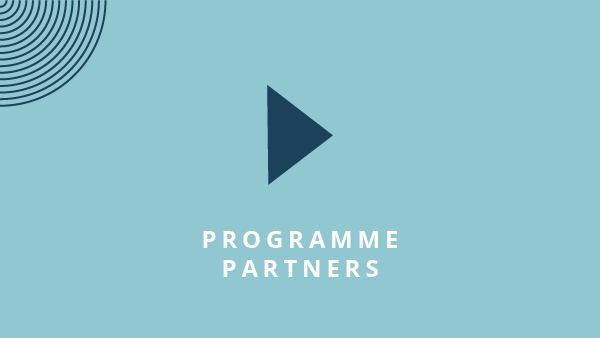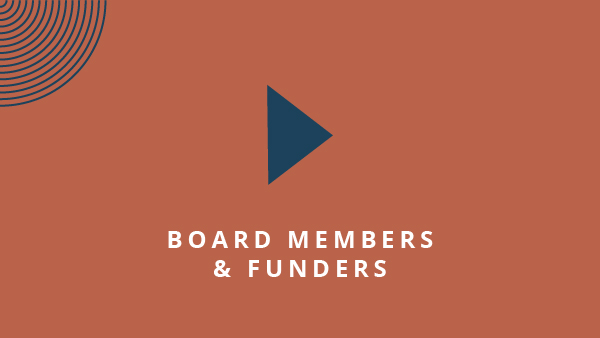News
Joyful Disruption: Celebrating the Gender Fund launch in conversation with our community
By Nandunda Kakai
March is a befitting name for a month defined by momentum and disruption within the gender community. The rallying call of #BreakTheBias went viral during International Women’s Day. Feminist leaders declared that gender inequality – coupled with the climate crisis – is ‘the greatest challenge of our time’ at the 66th Commission on the Status of Women (CSW).
The UN Deputy Secretary-General, Amina Mohammed, stated,
“It is only with women and girls at the center of our efforts that we have our best chance to succeed in addressing our current and pressing global challenges – from the climate emergency to political divisions to a sustainable recovery from this global pandemic.”
In Africa, feminist activists disrupted the status quo by convening the first parallel CSW on African soil, dubbed ‘Africa disrupt CSW66’, to drive more meaningful regional participation. Across the world, women’s rights and feminist movements, from grassroots to global efforts, created spaces to celebrate, reflect, and strategize on advancing gender equality.
The following week on 17 March, at Co-Impact, we were thrilled to launch the Gender Fund, our second fund that aims to raise 1 billion dollars over the next decade to make systems and societies more just and inclusive, advance women’s power, agency, and leadership at all levels, and address harmful gender norms.
As part of the launch, we had the privilege of hosting a vibrant public discussion on Galvanizing Collective Action for Gender Equality in the second installment of our newly started conversations series: a virtual space for learning and sharing with our community of partners and allies. Co-Impact’s Founder and CEO, Olivia Leland, hosted the discussion in the company of three dynamic leaders: Sohini B, CEO of Breakthrough Trust; Laura Garcia–President and CEO of Global Greengrants Fund; and Crystal Simeoni, Director for Nawi –Afrifem Macroeconomics Collective (The Nawi Collective). They discussed gender equality, with a keen emphasis on systems change and collaboration. The event attracted an audience of over 400 attendees from 39 different countries. The highlights video from this event is now available on our YouTube channel,
Here are the three key takeaways from the conversation:
1. Progress for gender equality will require disrupting and reimagining traditional funding mechanisms and approaches
When it comes to addressing gender equality, women’s rights activism and social movements have long been recognized as the key drivers of change. Few normative changes would have been possible without their contributions. Referencing a large-scale study based on data from 70 countries, session speakers pointed to quantitative evidence identifying autonomous women’s movements as the single most significant factor in influencing progressive policy on violence against women. They also noted that the influence of these movements surpasses that of women’s representation in legislature or politics. Yet, data shows that while funding for gender equality has been rising over the last decade, it has not trickled down to where it is most needed. Only 1% of that funding has reached women’s organizations that form the heartbeat of disruptive social movements for systemic change.
Even when available, funding, especially for small, informal, or emerging movements, is often designed to be restrictive and short-term while imposing complex administrative burdens on these organizations to attract and retain these funds. This is a reality that Crystal termed a ‘bureaucratic violence’ that distracts women’s rights and social movements from their movement-building passions and agenda. Moreover, traditional philanthropy is often perceived to mirror structures of inequality steeped in colonialism and capitalism and lacks sufficient mechanisms for pooling, collaboration, or identification of resonant opportunities to fund locally rooted movements.
Importantly, there was consensus on the need for philanthropy to adopt a more trust-based approach, founded on feminist values and principles, as quantity was deemed less important than flexibility, trust, sustainability, and the sharing of power. These are the four critical attributes that the Gender Fund hopes to continually respond to by offering flexible, multi-year funding through a partner-led approach. This approach means supporting organizations with lived experience and a deep understanding of the local context to lead initiatives that tackle inequality in critical sectors.
2. Advancing gender equality and women’s leadership will require collective disruptive action by multiple stakeholders at micro and macro levels
What does it take to close the projected 135-year gap to attain gender equality? While collaborative philanthropy has an important role to play, the truth is that disrupting entrenched systems of discrimination and inequality requires a collaborative approach from actors at all levels of these systems.
Sohini, in her presentation, defined gender equality from a rights-based perspective. She framed it as equal access and enjoyment of rights, resources, and power for women, girls, and gender minorities. Crystal Simeoni and Laura Garcia framed gender equality from an intersectional feminist lens with political and ideological underpinnings. The takeaway from this discussion was that gender equality will not be achieved without deconstructing the entire economic, political, social, and cultural systems and current norms.
As Laura emphasized, viewing gender equality as only a women’s or girls’ issue is grossly missing the point; it is about creating more just and equitable systems for all people. Gender is important and relevant across all sectors and issue areas, from climate action to education, to health. At Co-Impact, this looks like a winning coalition of strategic partners coming together from across the wider “ecosystem” that can help a program partner advance their ideas quickly and effectively.
3. Systemic change at scale is slow but attainable
Scaling solutions to respond to the complex and contextual systemic problems is something the gender community and feminist organizations often grapple with. Adopting the entrepreneurial and capitalist approach to scale has not always translated meaningfully within social movements. Unlike commercial innovations that scale linearly, effective scale in systems is often dependent on complex, spontaneous & continuous relationships, actions & behaviors.
To scale strategically means that actors would need to identify and focus on a critical component of the system that can cause a catalytic and enduring effect on other parts of the system to produce results at scale. However, this is hard work, which must be done collaboratively and adopt intersectional and large-scale systems thinking among all actors, including governments. This often requires patiently focusing on proven homegrown solutions, sustaining their funding, and focusing on depth before growth.
It’s 2032. What has the Gender Fund Achieved?
Co-Impact’s vision for the Gender Fund is audacious. Over the next 10 years, the fund aims to transform systems to be more just and inclusive, ensuring that at least 100 million people have better healthcare, quality education, and the opportunity to thrive – regardless of their gender, class, ethnicity, or race. Our webinar guests shared this aspiration for the fund to enable the scaling of more ideas, dismantle biases to create transformative feminist leaders, and lead in catalyzing change in how philanthropy is conceptualized and delivered so that women’s rights and feminist organizations do the work that they know needs to be done on their terms in the way that they want to do it.
Personally, I most liked the idea of joyful disruption. An idea grounded in feminist thinking where we ‘construct a community that is not only fighting injustice and crisis, but building happiness, love, and imagination.’ A hope that doing the challenging work of transforming systems results in happier, healthier communities and that those in the trenches of feminist movements can have moments of fun, self care, and enjoyment while at it. After all, as the title of Jane Barry’s book reads, what’s the point of revolution if we can’t dance?
Watch what happened …
Our program partners, gender fund advisors, board members, and funders share their excitement and vision for the Gender Fund.


